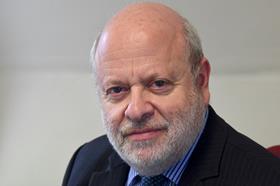Even as you are reading this, the legal profession is changing under our feet.

Of course, it is a condition of human life that everything always changes.
I will start with the numbers, but they describe just one aspect of our transformation.
The latest Law Society annual statistical survey was published at the end of last year, for the period to mid-2022.
To start with the overall picture, there are now 156,976 PC holders. Just 30 years ago there were only 60,000, and 20 years ago 90,000. What incredible growth! A number of factors must account for this, one of them presumably being that we have changed over time from being a manufacturing economy (walls to protect goods) to now being a service economy (contracts to protect services). Nearly 50% of the profession work in London and the South East, 21% of them work in the City of London, which offers some evidence for the assumption that economic structure has fuelled growth.
Some of the changes are better known: of those who reported such data from among practising certificate holders, 53% were women, and 18.4% from Black, Asian and minority ethnic background.
Less well-known is that over a quarter (26%) now work in-house, which is likely to be an underestimate, and the numbers working in private practice dropped by 2% over the year in question. All firms other than large ones (more than 81 partners) saw a drop in admitted staff.
The number of solicitors who work outside England and Wales now stands at 7% of the profession (11,212 in number, roughly three times the number of solicitors in Wales), an increase of over 43% over 10 years, and of 1% since last year.
As mentioned, the statistics give only a partial picture. There are also shifting areas of work, and changing values.
For instance, it would have been inconceivable a decade or so ago to consider that the groups of lawyers currently under the spotlight would be those in immigration (attacks over lefty lawyers, Rwanda and European Court of Human Rights) and reputation management (attacks over SLAPPs and lawfare).
They each represent tiny parts of the profession. The Immigration Law Practitioners Association reports 800 members and 3,000 people attending its training courses, but this includes barristers and other non-solicitor practitioners.
The Society of Media Lawyers, which is taking a stance on the current debate over SLAPPs, has a much smaller membership, representing around 25 solicitors’ firms, mainly mid-sized and in London. However, assuming that not all law firms involved in reputation management, defamation and privacy claims, whether on the claimant or defendant side, are members, a few more can be added to the likely total involved.
Other larger areas of solicitors’ work attract thousands of practitioners, with conveyancing, succession and commercial work as the obvious examples. The Law Society has a delicate balancing act, to be sure that the majority is properly served by its professional body, even if a small minority requires at the same time considerable resources because it is coming under fierce attack by the government, media and parliament.
All of our reputations rise and fall when solicitors are picked out in the glare of publicity like this, and so the Law Society does not have a choice, in my view, as to whether to respond, regardless of the number of solicitors involved.
The spotlight will continue to fall on immigration solicitors until at least the general election, given the priority that the government has given to tackling immigration. And the same is likely to happen with reputation management, since there is a Private Member’s Bill before parliament at present on SLAPPs, presented by Wayne David, the Labour MP for Caerphilly. As always with Private Member’s Bills, the government has the option of supporting it, and could do so if it wanted to plug the gap left by the partial treatment of SLAPPs in sections 194 and 195 of the recent Economic Crime and Corporate Transparency Act 2023 (which deal only with SLAPPs around economic crime).
There are also new (and not so new) social developments. Equality, diversity and inclusion (EDI) concern every profession and organisation. Environmental, social and governance (ESG) issues have been on the rise for years, with increasing reporting and other compliance requirements. The climate is rarely out of the news. There are not unanimous views in society, nor in the profession, about how best to deal with some topics. There are also technological developments, particularly around AI, which pose risks and challenges.
It is inconceivable that the Law Society should not add these to its agenda on behalf of the profession. This means that the Law Society must itself constantly change to be sure that it is not servicing the profession of 20 or 30 years ago.
Change is dizzying, and renewal never ends.
Jonathan Goldsmith is Law Society Council member for EU & International, chair of the Law Society’s Policy & Regulatory Affairs Committee and a member of its board. All views expressed are personal and are not made in his capacity as a Law Society Council member, nor on behalf of the Law Society































7 Readers' comments